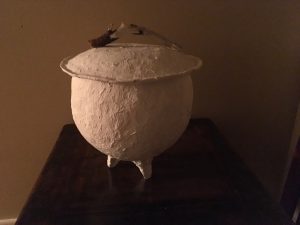 Someone dies and the family must answer, typically on short notice and in the presence of grief, questions to do with the ‘disposal of the body’. If there’s to be a funeral; has an undertaker been selected; what religious or spiritual observances are in order; is the body to be buried, cremated, shipped, or stored in a morgue; who needs to be informed and gathered, where and when; will there be an obituary, who writes it, when and how . . . the list will seem endless.
Someone dies and the family must answer, typically on short notice and in the presence of grief, questions to do with the ‘disposal of the body’. If there’s to be a funeral; has an undertaker been selected; what religious or spiritual observances are in order; is the body to be buried, cremated, shipped, or stored in a morgue; who needs to be informed and gathered, where and when; will there be an obituary, who writes it, when and how . . . the list will seem endless.
One important gift we can bestow on loved ones is to leave clear instructions regarding. Write them down and talk with someone who’s likely to be around when the time comes. Let let others know where instructions are kept but do not include them in your Will as there may be a delay between disposal of body and opening of said document. Consider leaving funds to cover festivities. Consider using this guide with worksheet and check list.
Please consider donating your body for the benefit of others. My own decision-making process begun with the wish to be cremated and ashes to be cast in various places. The more I reflected on the logistics I realized that I’d be burdening others unnecessarily. I went on to explore donating the body (a.k.a. cadaver) to a university medical school (such as the Body Program at UBC) for use in the education of future nurses, dentists, physiotherapists, and doctors. I’ve since registered for the eyes to be harvested and body parts used for transplants. This way my life vow “to be of service” will continue after my death. NOTE: please check applicable rules and registration procedures where you live.
Each of these two organizations have clear guidelines about what can be used used to benefit as many living beings as possible. Eyes, for instance, have to be removed without much delay so that two people may receive corneal transplants and up to six people a sclera graft. Even people with most forms of cancer may donate their eyes and even those who wear glasses, who are blind, or suffer from cataracts or glaucoma. Certain health conditions exclude transplants: go to BC Donor Registry for details and to register. To find out about organ transplants go to BC Transplant.
A word about cremains. I’m surprised to hear stories about ashes kept in some unceremonious container — shoe box, paper bag, tin can — collecting dust on a mantle piece or hiding at back of a cupboard. If this sounds familiar, you could make it your business to initiate a dignified way to complete someone’s circle of existence.
♥ I’m currently having fun making cremation urns using papier-mâché, something I didn’t learn in elementary school. The plan is to make a few for sale-by-donation. They’ll be bio-degradable for sea or earth interment and kept white for use as-is or decoration.

Hi Tante,
With heavy yet uplifted hearts, Sybil and I transported part of my father’s cremains back to Germany last month, where we scattered them in the garden of our dear friends, the Gabbert family. I love that you are making cremation urns and supporting people in this part of their journey. Blessings to you always. XO
Loved the little bit of light at the end of your post. You made me laugh thinking about “something you didn’t learn in elementary school.” I have thought about my cremains and personally, I would like my remains shot out of a clown canon, like the ones at the circus, with confetti and sparkly things intermixed.